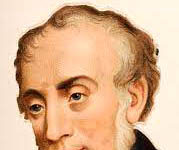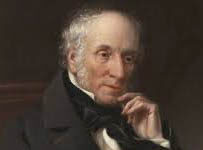Shakespeare’s Legacy Shaping Modern Literature
Shakespeare’s Legacy Shaping Modern Literature
Shakespeare’s Legacy Shaping Modern Literature
Introduction:
William Shakespeare, the iconic English playwright, poet, and actor, is a literary giant whose influence on modern literature is immeasurable. His works, penned over four centuries ago, have left an indelible mark on the world of literature, and they continue to shape and inspire contemporary writers, playwrights, and poets. This essay explores Shakespeare’s enduring legacy and how his contributions have played a pivotal role in shaping modern literature. Shakespeare’s Legacy Shaping Modern Literature
Timeless and Universal Themes:
Shakespeare’s work stands as a testament to the timeless and universal themes that resonate with readers and audiences today. His exploration of human nature, love, jealousy, ambition, power, and the complexities of the human psyche remain as relevant now as they were in the Elizabethan era. For instance, “Hamlet” continues to be a source of fascination for scholars and artists, addressing themes of revenge, madness, and moral ambiguity. Shakespeare’s ability to delve into the depths of human emotion and psychology has served as a foundation for modern psychological literature, with characters like Macbeth and Othello providing rich case studies in the realms of guilt and manipulation.
Mastery of Language and Wordplay:
The mastery of language and wordplay in Shakespeare’s works has had a profound impact on modern literature. He invented over 1,700 words and phrases, which are still in use today, such as “eyeball,” “gloomy,” “lonely,” and “bedroom.” His creative use of language, puns, and metaphors has inspired countless writers to experiment with and push the boundaries of language. This linguistic legacy can be seen in the works of James Joyce, who drew heavily from Shakespeare’s wordplay in his groundbreaking novel “Ulysses.” Similarly, the creative use of language in contemporary literature, such as the works of Salman Rushdie or David Foster Wallace, can be traced back to Shakespeare’s influence.
Diverse Characters:
Shakespeare’s diverse cast of characters has also contributed to the evolution of character development in modern literature. His complex, multi-dimensional characters like Hamlet, Lady Macbeth, and King Lear have provided a blueprint for creating characters with depth and nuance. Writers like George Eliot, Charles Dickens, and Jane Austen were influenced by Shakespeare’s ability to craft characters that reflect the intricacies of human nature. In the modern literary landscape, authors such as Toni Morrison, J.K. Rowling, and George R.R. Martin have continued to draw inspiration from Shakespeare’s characterizations, creating memorable and relatable figures that resonate with contemporary readers.
Innovative Storytelling Technique:
Shakespeare’s innovative storytelling techniques have also left a profound mark on modern literature. He experimented with narrative structure, using techniques such as soliloquies, asides, and dramatic irony to engage the audience and provide insight into the characters’ thoughts and emotions. These techniques have influenced countless authors, including the stream-of-consciousness style of writers like Virginia Woolf and the unreliable narrators found in postmodern literature. Shakespeare’s Legacy Shaping Modern Literature
Societal Critiques:
Moreover, the themes and societal critiques in Shakespeare’s works are still relevant and influential today. His exploration of power and its corrupting influence, as seen in “Macbeth” and “Julius Caesar,” continues to be a source of inspiration for contemporary writers who grapple with issues of political corruption and the abuse of authority. The examination of gender roles and societal expectations in works like “Othello” and “The Taming of the Shrew” paved the way for feminist literature, inspiring authors like Virginia Woolf and Margaret Atwood to challenge and deconstruct traditional gender norms.
Shakespeare’s impact on the theater cannot be overstated. His plays have been performed continuously for centuries, and his dramatic techniques and storytelling prowess have been instrumental in shaping modern drama and screenwriting. Playwrights like Tennessee Williams, Arthur Miller, and August Wilson have drawn from Shakespeare’s dramatic structure and thematic depth, creating powerful and emotionally resonant works for the stage and screen. Shakespeare’s Legacy Shaping Modern Literature
Conclusion:
In conclusion, William Shakespeare’s legacy in shaping modern literature is profound and enduring. His exploration of timeless themes, mastery of language, complex characters, innovative storytelling techniques, and societal critiques continue to inspire and influence writers and artists across the globe. Shakespeare’s work is a testament to the enduring power of literature to connect with the human experience, and his influence on modern literature is a testament to his enduring relevance and genius. His work not only defined an era but continues to shape the literary landscape, reminding us that his legacy will endure for generations to come. 0 0 0. Shakespeare’s Legacy Shaping Modern Literature
Shakespeare’s Legacy Shaping Modern Literature
You May Like:
Additional Searches:











